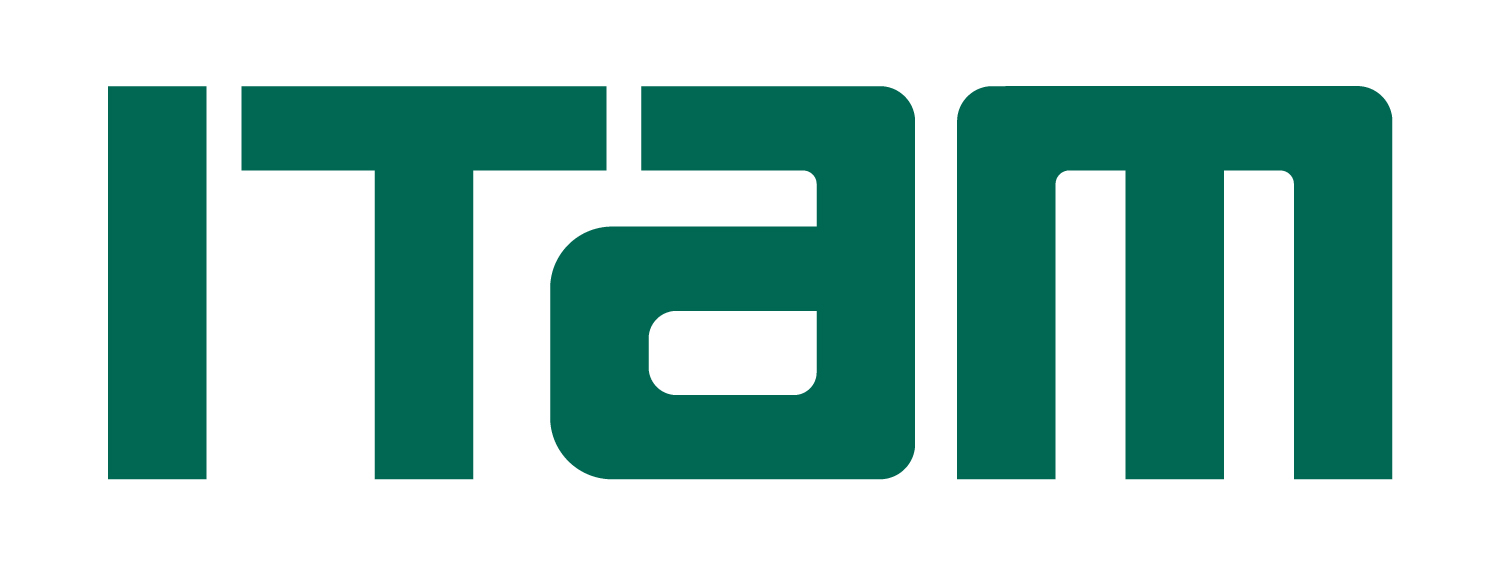Felicitamos al...
"OMiLAB- An Agile Modeling Method Engineering Environment"
Drs. Dimitris Karagiannis y Dominik Bork, University of Vienna, 18 de noviembre de 2016, 12:00 h salón 111 Río Hondo ITAM
Abstract:
The foundations of a conceptual-model-awareness approach for next generation Enterprise Information Systems will be presented. This novel approach makes use of semantic networks to extend model-awareness towards arbitrary types of models that are developed for specialized communities aiming for domain-specificity (or even case-specificity) in their modeling language, therefore favouring productivity at the expense of reusability across domains.
The technological space for capturing and bridging knowledge through model semantics is primarily based on diagrammatic models. Two categories of models are employed in this context: (1) Models of Concepts - for describing a common understanding of a domain through its concepts and relations; (2) Models that use Concepts - typically domain-specific models based on some already established understanding of the domain. The hereby introduced Agile Modeling Method Engineering -AMME- concept aims to apply the principle of agility established in Software Engineering (e.g., evolutionary development, flexible response to change) to the practice of Modeling Method Engineering. The main assumption is that a modeling method may evolve iteratively based on changing modeling requirements and feedback loops.
Within the context of AMME, a full methodological life cycle is established by the OMiLAB Laboratory (www.omilab.org), with encompassing five phases: (1) create, (2) design, (3) formalize, (4), develop and (5) deploy/validate. The approach is supported, in its prototyping stage, by the meta modeling domain-specific language MM-DSL and within the academic version of the meta-modeling platform ADOxx (www.adoxx.org).
"La Visión activa aplicada en los problemas de la robótica submarina"
Dra. Luz Abril Torres, CINVESTAV-Saltillo, 17 de noviembre de 2016 13:00 h salón 305 Río Hondo ITAM.
Resumen:
En esta plática describiré los fundamentos de la visión activa, sus elementos y propiedades necesarios así c omo los tipos de sistemas de visión activo existentes. En particular, me enfocaré en los sistemas de visión adaptados a plataformas robóticas submarinas, mostrando videos de las exploraciones realizadas, de forma completamente autónoma, por nuestro robot acuático Mexibot de la zona de arrecifes coralinos en Costa Maya, México. Aboraré los proyectos de tesis realizados y los problemas científicos asociados relacionados a la navegación con evasión de obstáculos, restauración del color en las imágenes submarinas, generación de trayectorias motoras-perceptivas para emular comportamientos intuitivosm entre otros. Finalmente, hablaré de los proyectos actuales y futuros.
"Systems Engineering for Medical Devices"
Thomas M. Rudolf, Departamento de Ingeniería Industrial y Operaciones, 14 de octubre de 2016, salón 315 Río Hondo ITAM.
Abstract:
Nowadays, the development of new products implies the interaction of different engineering and non-engineering disciplines in order to fulfil the amount of requirements anda specification. Each discipline has its own language and methods. Therefore, Systems Engineering (SE) has become an important discipline to technically coordinate these kind of complex projects and to assure the success of the projects. This presentation wil describe the methodology of Model Based Systems Engineering (MBSE) for medical devices based on the V-Model. For each phase the methods are described that are required to successfully drive a project. The main focus hereby is on the fuctional modelling and physical modelling of a medical device. Using the example of an insulin delivery system the presentation will illustrate the advantages of MBSE with respect to time schedule and cost reduction, changes of specification or the implementation of algorithms for diagnostics purpose.
Thomas M. Rudolf is Visitant Professor in the Departament of Industrial & Operations Engineering at ITAM. Thomas is a mechanical engineer form the University of Darmstadt and specalizes in Mechatronics. He focuses his studies on dynamic behavior of mechatronics systems, control theory and identification of systems. He graduate in May 2005 as Master in Mechanical and Process Engineering. During the following six years, he worked as a research assistant adn project manager at the Laboratory of Machine Tools and Process Engineering, at RWTH University Aachen. During this time he developed his doctoral investigation. Later in 2011, he continued his professional carrier at Roche Diagnostics as a Systems Engineer with focus on simulation and calculation.
"Creando Empresas a partir de la Ingeniería de la Información"
Omar Baqueiro Espinosa, Director de Ingeniería de KUESKI, 5 de octubre de 2016, 13:00 h, Sala de Maestros P.B. , Río Hondo, ITAM
Resumen:
Nos platicará principalmente de la implementación de sus modelos predictores vía aprendizaje de máquina; desde ideas provechosas que han mejorado el proyecto, hasta los errores cometidos y cómo han aprendido de ellos.
También hablarán de la tecnología que han estado construyendo, el desarrollo de la infraestructura de Kueski y cómo han madurado sus sistemas para llegar a tener procesos para evaluación de Riesgo crediticio de manera casí instantánea.
"High-Performance Visualizations (HPV) for Human design"
Nicholas F. Polys, Virginia Tech, Conferencia Magistral, 3 de marzo de 2016, 11:30 h, Auditorio "Raúl Bailleres" Río Hondo, ITAM
"The Future of Design"
Don Norman, Design Lab, UC San Diego, Conferencia Magistral 8 de marzo de 2016, Auditorio "Raúl Bailleres", Río Hondo ITAM
"The Vortex of Change"
Andre Moore, Intel EUA, Conferencia, 16 de febrero de 2016, Auditorio "Raúl Bailleres" Río Hondo, ITAM
"Bionic Programmers of Tomorrow"
Christopher Parnin, Assistant Professor NC State University, Conferencia Magistral, 4 de febrero de 2016, Auditorio "Raúl Bailleres" Río Hondo, ITAM
Abstract:
Studies of personal activity tracking devices and applications, such as the Fitbit and the Moves app, demonstrate that these devices and applications can be effective in encouraging individuals to adopt more active lifestyle. Similarly, we wish to study how understanding cognitive neuroscience, and acces to low-cost, widely available, high-fidelity biometric sensors can be used to more directly observe a software deloper´s cognitive and affective (emotional) processes. Technologies like EEG (electroencephalography) and eye tracking can be used to look at cognitive processes such as program comprehension and code writing with extremely fine temporal resolution. Data from EDA (electrodermal activity) and HRV (heart rate variability) sensors can reveal the software developer´s internal emotional states, for example identifying when the developer is confused, frustrated, surprised, stressed, fatigued, or in a highly productive flow state. These affective states can be correlated with code quality, software complexity, development productivity, and effective communications and may even be harnessed for expressing new programs.
Bio:
Chris Parnin is an Assistant Professor at North Carolina State University. He received his Ph.D. in Computer Science from the Georgia Institute of Technology. His research spans the study of software engineering from empirical, HCI, and cognitive neuroscience perspectives. Two recent research topics include A) using fMRI and EMG to actually study the brain activity of developers and B) understanding how crowds of developers come together on sites such as Stack Overflow and Github to contribute software knowledge. He has worked in Human Interactions in Programming groups at Microsoft Research, performed field studies with ABB Research, and has over a decade of professional programming experience in the defense industry. Chris's research has been recognized by the SIGSOFT Distinguished Paper Award at ICSE 2009, Best Paper Nominee at CHI 2010, Best Paper Award at ICPC 2012, IBM HVC Most Influential Paper Award 2013, featured in Game Developer's Magazine, Hacker Monthly, and frequently discussed on Hacker News, Reddit, and Slashdot
"The World needs Techies Managers and Managerial Techies"
Clint Tuttle, Conferencia Magistral, 28 de enero de 2016, 11:30 h, Auditorio "Raúl Bailleres" Río Hondo, ITAM
Abstract:
Do a Google search for "top skills for today´s job market" and you´ll see computer literacy at the top but not without also seeing Problem Solving and Communications Skills. At the University of Texas were seeing tons of MIS majors lake extra CS classes while many CS majors taking business classes. The growing demand for a portfolio of skills and experience rather than one deep skill is becoming more obvius each day. For example, many industry companies are beginning to consolidate IT officers and bring the IT skills back in-house rather than outsources everything. This requires employees to possess a diverse set of technical and soft skills. With the growing popularity of user-centric design in IT, data analytics and even smart machines, were going to see that people that have a mix of technical and interpersonal skills can make a great impact and this is want many companies need. Careful not to have tunnel-vision in your personal development pian. Soft skills without technical will only take you so far and the same could be said for technical skills with no soft skills.
"Métodos de Visualización como herramienta de análisis y toma de decisiones"
José E. Ramírez-Márquez, Associate Professor Stevens Institute of Technology School of Systems & Enterprises, martes 12 de enero de 2016, 11:30 h a 12:30, Sala de Conferencias, Río Hondo.
Resumen:



